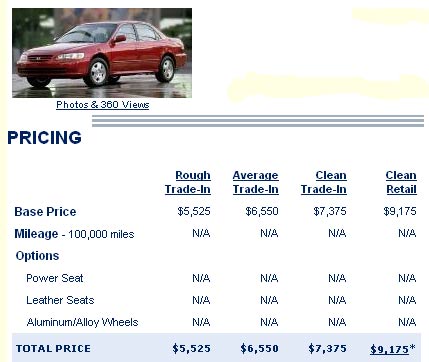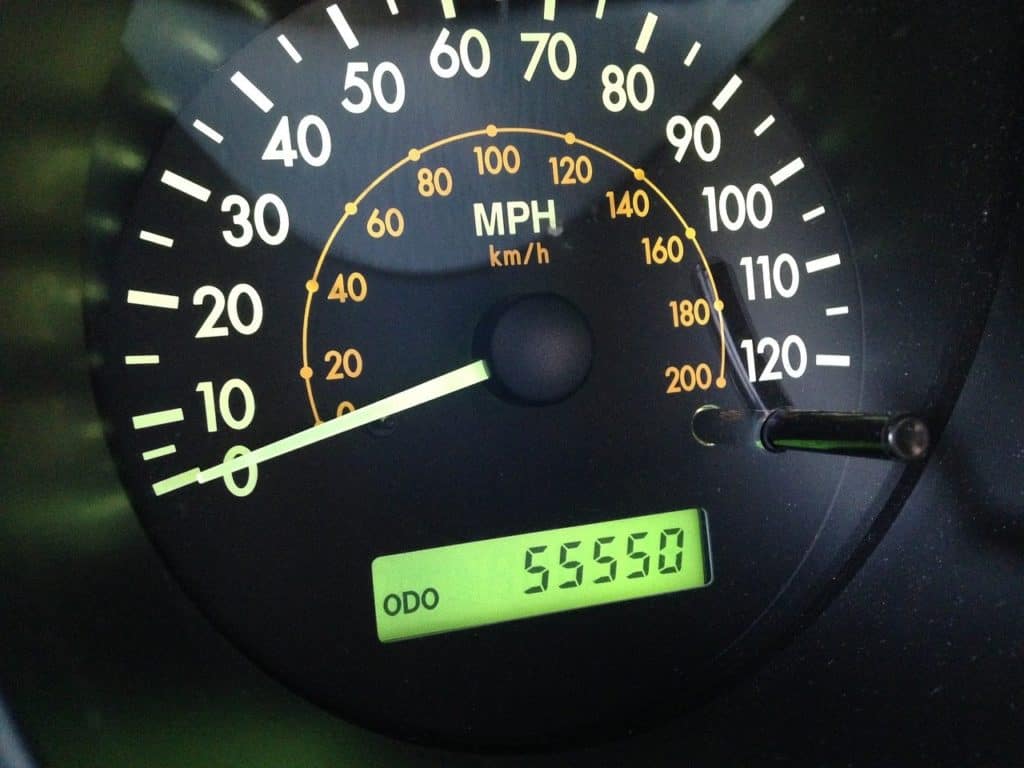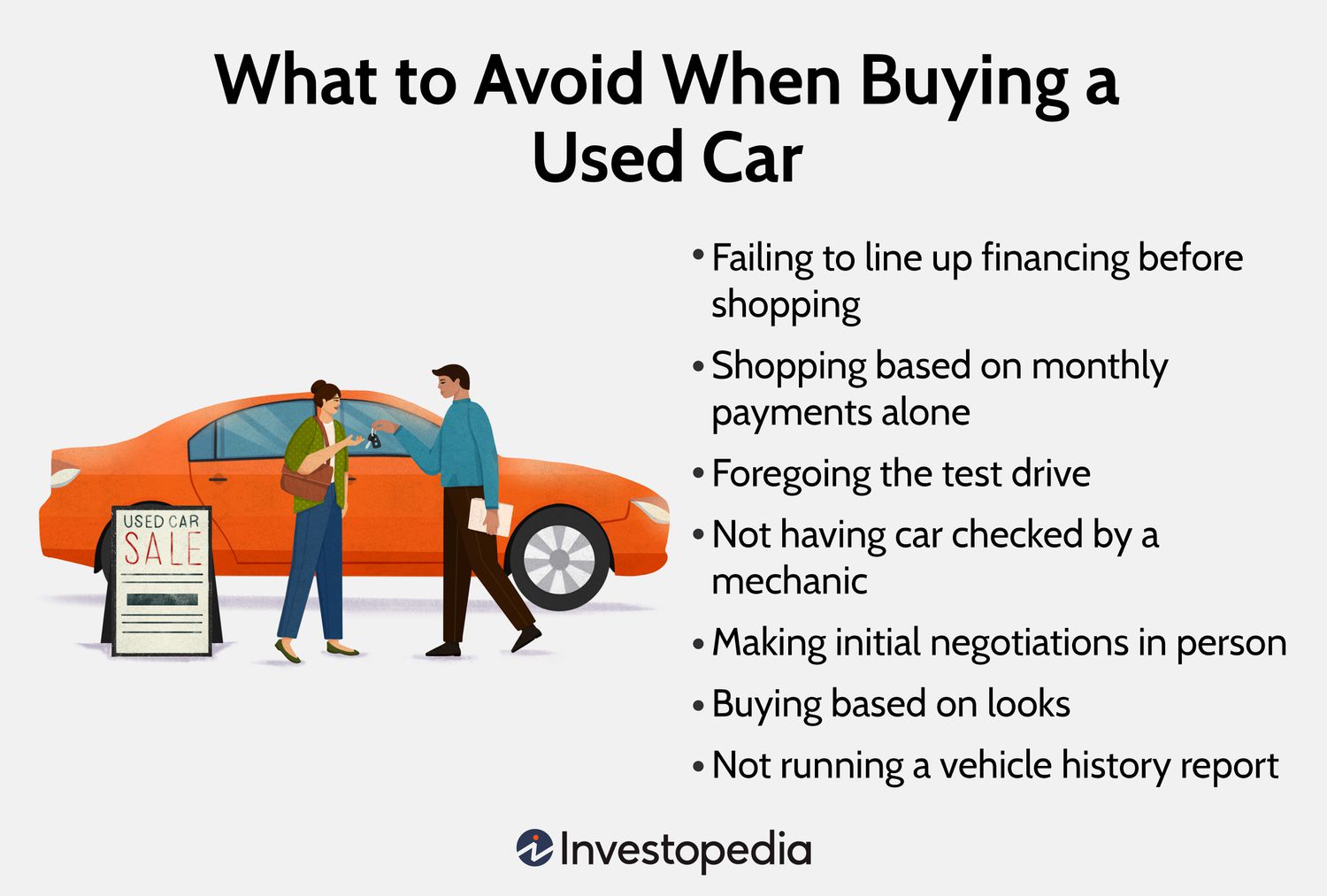What is a Good Used Car Mileage
A good used car mileage is generally considered to be around 12,000 to 15,000 miles per year. Avoid vehicles with excessively high mileage for their age.
Shopping for a used car can be tricky when balancing quality and value. Mileage is a crucial factor in assessing a vehicle’s lifespan. Cars with an annual mileage within the 12,000 to 15,000 range are often preferred as they indicate regular use without excessive wear and tear.
High mileage isn’t always a deal-breaker though; a well-maintained car with higher miles could still be a reliable choice. Always couple mileage checks with a vehicle history report and a professional inspection. This holistic approach ensures you can make an informed decision, securing a car that promises longevity and performance despite previous ownership.

Credit: www.realcartips.com
What Determines Good Used Car Mileage
When searching for a pre-owned vehicle, mileage often becomes the topic of discussion. People usually ask, “What is good used car mileage?” The answer lies beyond just a number on the dashboard. Different factors determine whether a car’s mileage is good or high-risk.
Mileage Vs. Age: Which Matters More?
Mileage and age both tell stories about a car’s past. A low-mileage car may seem ideal, but it isn’t always the best choice. An older car with minimal miles could indicate it sat unused, which may lead to rubber and seals degrading. On the flip side, a newer car with high mileage might have been driven on highways, indicating less wear and tear.
It’s about finding balance. Consider a car’s maintenance records, year of manufacture, and mileage together. A well-maintained, 5-year-old car with 60,000 miles could be a better pick than a 3-year-old car with 90,000 miles on it.
Evaluating Quality Beyond The Odometer
Look deeper than just numbers when choosing a used car. A car’s condition matters more than the distance it’s driven. Consider these points:
- Regular maintenance history
- Physical condition of the engine and body
- Interior wear and tear
- Performance on the road
Conduct a professional inspection. Mechanics can spot what isn’t obvious to the eye. This step reveals hidden issues and ensures peace of mind in your used car purchase.
Mythbusting Used Car Mileage
Choosing a pre-owned vehicle often leads to the big question of what is good used car mileage? Many myths surround the numbers on the odometer. Let’s debunk some of these misconceptions and set the record straight on what to consider when evaluating a used car’s mileage.
Common Misconceptions
- Low mileage always means less wear – Not entirely true; a car’s condition isn’t solely dependent on miles covered.
- All high mileage cars are bad – A well-maintained high mileage car could be more reliable than a neglected lower mileage one.
- A car over 100,000 miles is a no-go – Nowadays, many vehicles can far exceed this mark and still run smoothly with proper care.
High Mileage Can Be Misleading
Don’t judge a car solely by the numbers on the odometer. High mileage vehicles often receive meticulous maintenance to stay road-worthy. On the other hand, low mileage doesn’t guarantee a problem-free car. It’s crucial to consider variables such as maintenance history, model reliability, and previous ownership to truly gauge a car’s condition.
Regular maintenance can make a higher mileage car a savvy buy. Let’s break down why:
| Mileage | Factor | Impact on Car |
|---|---|---|
| High | Maintenance | Regular care often points to a healthier engine and components. |
| Low | Usage | Infrequent use can lead to unexpected issues, like engine seals drying out. |
Finding The Sweet Spot
Choosing the right used car involves finding a balance in the odometer reading. A car’s mileage influences its value and reliability. The sweet spot in used car mileage means a great deal for longevity and price. Let’s discover how to find this perfect mileage range.
Average Annual Mileage Guidelines
Finding a car with the right mileage is like hitting a moving target. The typical driver covers about 12,000 to 15,000 miles annually. A 5-year-old car with less than 75,000 miles might be a good buy. Here are factors to consider:
- Low Mileage: Less wear and tear, potentially longer lifespan.
- High Mileage: More use, possible maintenance concerns.
- Ideal Range: Reflects average use, balanced wear and maintenance.
Assessing Vehicle History Reports
Digging into a car’s history reveals more than just mileage. A vehicle history report outlines past use and maintenance. Good maintenance can make a high-mileage car a better buy than a low-mileage one without care. Look for:
| Report Detail | Importance |
|---|---|
| Service Records | Shows regular maintenance. |
| Accident History | Impacts vehicle’s integrity. |
| Ownership | Multiple owners may signal issues. |
Choose wisely. A well-maintained car with 100,000 miles might outlast a neglected one with 50,000. Always balance mileage with vehicle condition, service history, and use type.

Credit: www.jdpower.com
The Impact Of Maintenance
The Impact of Maintenance on the longevity and reliability of a used car cannot be overstated. Often, buyers focus on the odometer, but the care given to the vehicle throughout its life is equally crucial. Understanding how maintenance can affect a used car’s mileage will guide you in making an informed decision.
Service Records And Vehicle Care
Service records provide insight into the vehicle’s history. They are like a report card showing how well the car was treated. A car with a higher mileage but consistent service records can be a better choice than one with lower mileage but unknown or spotty maintenance history.
- Regular oil changes keep the engine in good condition.
- Timely belt replacements prevent major mechanical failures.
- Documented tire rotations reveal attention to vehicle balance and handling.
When evaluating used cars, scrutinize the service records. Assess the quality of the maintenance and the diligence of the previous owner in adhering to service schedules. This evaluation is often more telling than the mileage reading alone.
How Proper Maintenance Extends Car Life
Proper maintenance breathes life into every component of a vehicle. It goes beyond just oil changes and tire rotations. Comprehensive care can dramatically extend the potential lifespan of a car, sometimes surpassing the expected mileage by a significant margin.
- Engine performance is boosted with regular tune-ups.
- Brake inspections ensure safety and prevent costly damages.
- Fluid checks and replacements ward off mechanical issues.
A meticulously maintained car can defy age and mileage. Look for evidence of proactive maintenance rather than reactive repairs. A vehicle showing this level of care is likely to offer better reliability and a smoother driving experience, regardless of the numbers on the odometer.
Making A Smart Purchase
When buying a used car, knowing what a good mileage is crucial. It can tell you a lot about the car’s past and what you can expect in the future. But there’s more to it than numbers. Smart car buying also involves thorough inspection and negotiation skills. Let’s dive into key aspects for informed decision-making.
Key Inspection Points
Before sealing the deal, inspect these:
- Tire condition: Check for even wear and tread depth.
- Engine bay: Look for leaks or corrosion.
- Oil status: The color and level of the oil can indicate maintenance.
- Interiors: Assess wear and tear on seats and controls.
- Service History: A well-documented log is a positive sign.
Securing A Pre-purchase Inspection
Always opt for a professional pre-purchase inspection. Here’s why:
- Experts can spot issues you might miss.
- They can provide an estimate for potential repairs.
- The inspection could be a strong negotiating tool.
Negotiating With Mileage In Mind
When discussing price, remember:
| Mileage | Car Condition | Negotiation Tip |
|---|---|---|
| Under 60,000 | Like New | Bargain softly, the car has a lot of life left. |
| 60,000-100,000 | Good | Be fair, but factor in potential upcoming services. |
| Over 100,000 | Varied | Use mileage to negotiate the price down. |
Future-proofing Your Investment
Future-proofing Your Investment means thinking about how the car will serve you down the road. Buying a used car involves much more than just looking at the price and mileage. To make a smart purchase, you need to consider how the car will last and what costs may come up. Let’s explore how to secure your investment for the long haul.
Considering Warranty And Reliability
A good warranty offers peace of mind. The balance of a manufacturer’s warranty may still cover a low-mileage used car. This can save costs from unexpected repairs. To ensure reliability:
- Look for cars known for longevity.
- Check the vehicle history report for past issues.
- Consider certified pre-owned options for extended warranties.
Projected Costs And Ownership Timeline
Understand the costs before you buy. Consider maintenance, repair, insurance, and depreciation. A well-maintained car with 50,000 miles may last longer than a car with 20,000 miles but poor maintenance history.
| Mileage Range | Expected Lifetime | Annual Maintenance Cost |
|---|---|---|
| Under 30,000 | Long | Lower |
| 30,000 – 60,000 | Good | Moderate |
| 60,000 – 100,000 | Varies | Higher |
Set a timeframe for how long you plan to keep the car. And remember, a lower-mileage car may give you a longer, more cost-effective ownership experience.

Credit: www.lindsayvolkswagen.com
Frequently Asked Questions Of What Is A Good Used Car Mileage
What Determines A Good Mileage For Used Cars?
Good mileage for a used car is often under 100,000 miles, though it varies based on the car’s age and maintenance history. Ideally, aim for 12,000 to 15,000 miles per year.
How Does Mileage Affect A Car’s Lifespan?
Higher mileage typically means more wear and tear, which can shorten a car’s lifespan. However, regular maintenance can significantly extend the life of a high-mileage vehicle.
Can High-mileage Cars Be Reliable?
Yes, high-mileage cars can be reliable if they’re well-maintained. Look for vehicles with a documented service history to ensure their reliability despite higher mileage.
Should Mileage Or Age Be The Priority When Buying Used?
Both factors are important, but lower mileage is generally preferable as it indicates less wear. However, an older car with lower mileage might be a better choice than a newer car with high mileage.
Conclusion
Selecting a used car involves numerous considerations, one of which is mileage. Although lower miles often indicate less wear, it’s crucial to weigh other aspects such as maintenance history, vehicle age, and brand reliability. Remember, a well-maintained high-mileage car can outperform a low-mileage vehicle that has seen neglect.
Ultimately, a “good” mileage for a used car depends on a balanced view of these factors, ensuring you drive away with a dependable and worthwhile investment.





